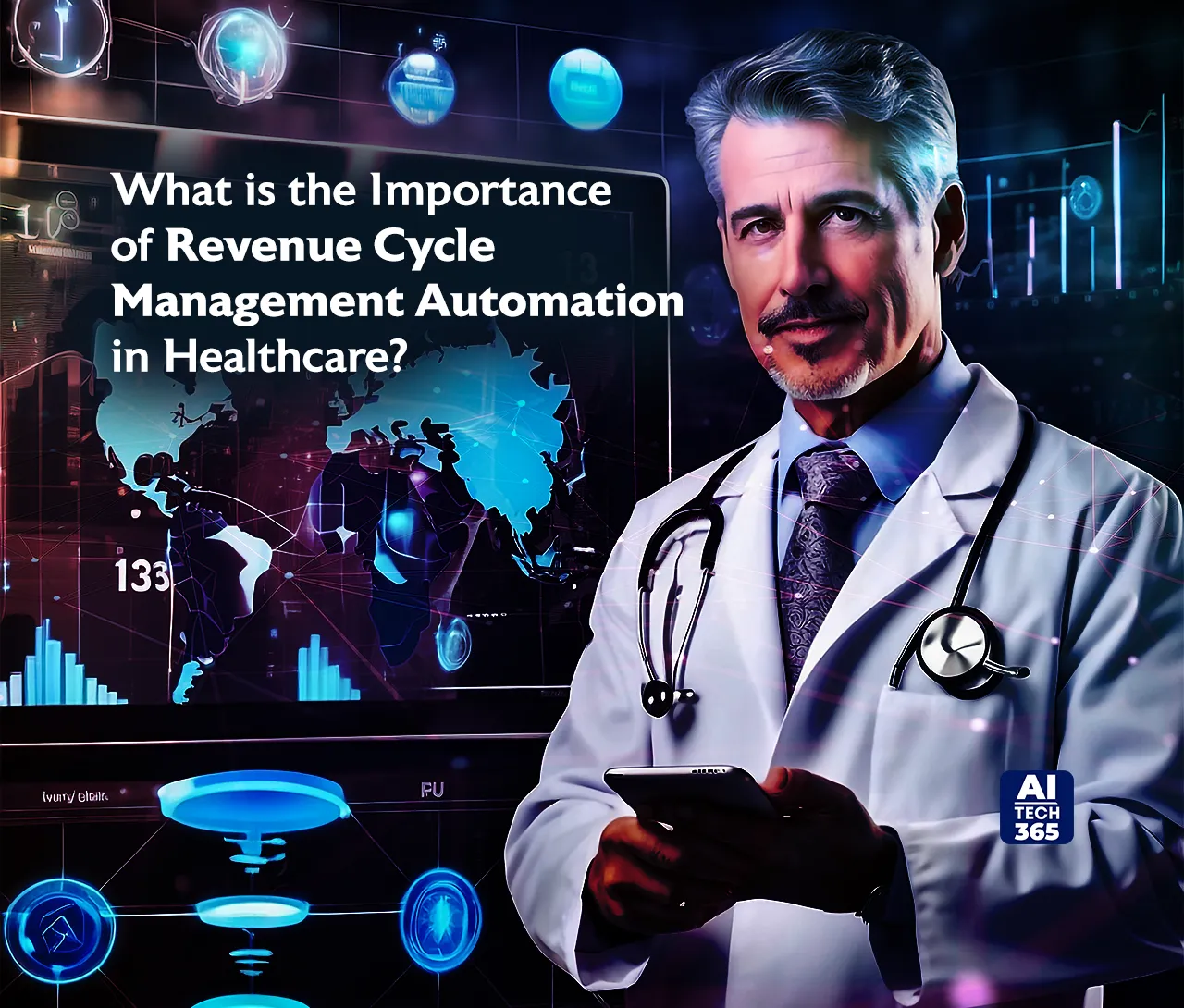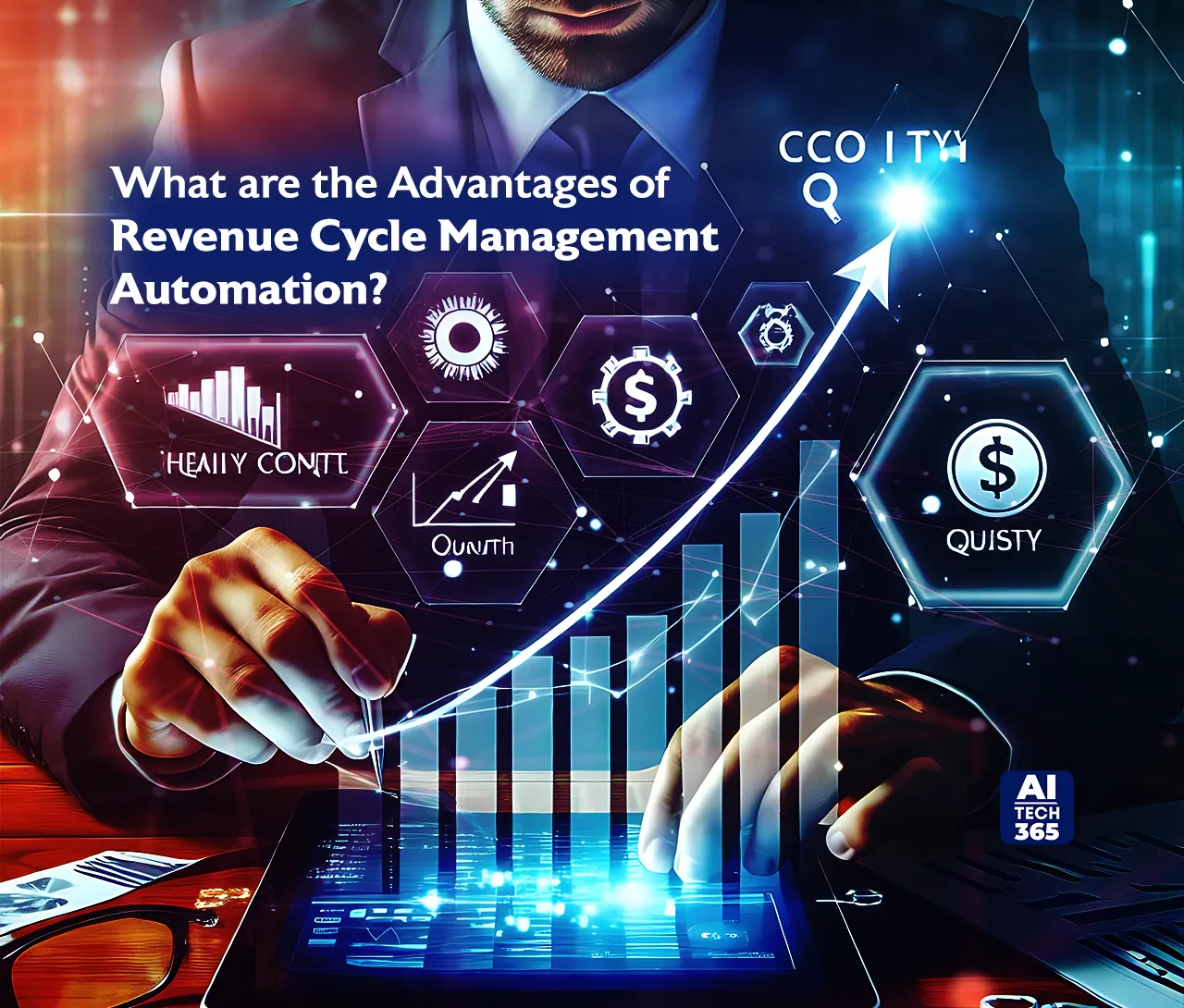Revenue cycle management (RCM) automation is gaining a significant amount of attention in the healthcare industry.
In fact, a recent report highlights that approximately 74% of the CFOs and revenue cycle leaders in a healthcare organization state they are already utilizing automation or are in the process of adopting it in their revenue cycle work processes. This strategy helped them to enhance their productivity and have fewer claim denials and mistakes.
There is still a lot of room for improvement in revenue cycle automation that businesses can explore to optimize their operations. Development teams have started integrating automation such as robotic process automation (RPA), artificial intelligence (AI), and generative AI applications. It has helped automation to achieve more productivity in a revenue cycle. In this blog, let us have a look at the definition of revenue cycle management automation, its importance in healthcare, and best practices.
What is RCM Automation?
Revenue Cycle Management (RCM) is one of the most important processes in the healthcare industry. RCM consists of multiple steps and tasks that healthcare professionals execute to have an overview of the financial facets of patient care. Revenue cycle management is a systematic strategy that healthcare providers embrace to manage, process, and collect revenue from their patients for the services offered. Right from the first appointment of the patient with the doctor to admission and the final stage of payment, RCM encompasses all the services rendered by the patient. It is crucial for healthcare providers to have effective revenue cycle management to improve revenue streams from the patient services offered. The process of monitoring this cycle without human intervention is referred to as revenue cycle management automation.
What is the Importance of Revenue Cycle Management Automation in Healthcare?
Given below are 8 factors that showcase the importance of RCM automation in healthcare:
- The best RCM systems with all the functionalities will reduce the billing and collection cycles. It has the capability to correctly register patients, book appointments, execute scheduling, and process payments.
- The tool has all the administrative data integrated into the system. These tools will have patient details, insurance plans, and other patient demographics with all the care that the patient gets.
- RCM is important in healthcare because it is an effective way to save time and money. It reduces the number of claim denials and makes it easier for patients to make payments online.
- Revenue cycle management automation bridges the gap between the commercial and clinical healthcare sectors.
- The healthcare industry integrates RCM automation systems to record and handle patient billing data.
- Healthcare providers can integrate electronic health records (EHRs) and billing systems. It is an efficient strategy to reduce the time between service offerings and receiving the payment for the same. RCM has the capability to reduce administrative expenditures.
- RCM solutions streamline communications and interaction between accounting and EHR tools.
- Following are a few administrative functions that fall under RCM’s purview:
- Sending notifications to the patients about their upcoming appointments
- Sending reminders to the patients about the remaining balance
- Notifying the insurers if their claim gets denied
What are the Advantages of Revenue Cycle Management Automation?
Following are a few benefits of how embracing automation in the RCM will help healthcare providers:
● Enhance Staff Communications
RCM automation makes communication between healthcare teams more efficient. It has the capability to gather layers of data from various sources. The data is stored on a centralized server, which gives access to updated information in real time to the users. It eliminates the need to run back and forth between other departments or have duplicated efforts.
● Improve Patient Interactions
It is critical for healthcare professionals to have efficient patient communications. Automation in RCM streamlines patient support.
● 24/7 Accessibility
Adopting AI in revenue cycle management automation will help to deploy virtual assistants. These bots have the capability to process claim intake, analysis, and manage incoming claims information from vendors. It also can streamline the extraction of needed information, determine expectations, and process medical bills through to payment.
● HIPAA Compliance
AI in revenue cycle management automation helps healthcare providers maintain compliance-based records with the highest accuracy. Healthcare organizations can meet all HIPAA compliance requirements.
● Seamless Pre-registration
RCM automation systems can accelerate the pre-registration processes. Patients or caretakers can fill out the form on online portals at any time. If the patients do not fill in any specific details, the system will explore the history and fill in the required information.
Also Read: 5 Ways AI in Radiology Transforms the Medical Industry
What are the Best Practices for Efficient Revenue Cycle Management Automation?
Healthcare providers can consider the following top practices to enhance their RCM automation strategies:
1. Evaluate Current RCM Processes
Decision-makers in the healthcare sector can initiate their RCM automation journey by mapping their processes. They can determine and document the existing RCM processes to understand the inefficiencies in their operations. It is essential to do an in-depth gap analysis. Pinpointing areas that can benefit from automation can be a great place to start. Identifying gaps in claim submission, denial management, and patient billing plays a crucial role.
2. Select the Best Revenue Cycle Management Automation Technology
There are various vendors that offer comprehensive RCM solutions. Healthcare decision-makers need to choose the best RCM software that offers a complete suite of RCM tools. It should include automation capabilities to execute billing, coding, claims management, and patient engagement. Before selecting the software, ensure it is interoperable. The RCM solution should seamlessly integrate with electronic health records (EHR) and other existing systems.
3. Data Standardization and Accuracy
Data quality plays a crucial role in RCM automation success. Healthcare team members should maintain high data quality standards to reduce errors in billing and claims processing. Stakeholders should standardize data formats across different systems to ensure consistency and accuracy.
4. Automate Key Processes
Automation of the key claims management processes, such as claim submission, tracking, and follow-up processes, will help reduce delays and improve cash flow. Healthcare vendors should consider Implementing automated tools to identify, categorize, and address claim denials proactively. Using automated systems to send patient statements, process payments, and manage collections efficiently will ensure success.
5. Implement Advanced Analytics
Integrating predictive analytics tools on the tech stack to predict and prevent potential denials and identify trends that could lead to revenue loss will help to avoid losses. The best RCM automation software will have real-time dashboards to monitor key performance indicators (KPIs) and gain insights into RCM efficiency.
Wrapping up Revenue Cycle Management Automation
Efficient revenue cycle management automation needs healthcare providers to take a strategic approach. Business leaders need to select the right technology to ensure continuous staff training and patient engagement. Implementing the right tools and following the best RCM automation practices will help healthcare organizations minimize administrative costs, improve cash flow, and optimize overall financial performance.


